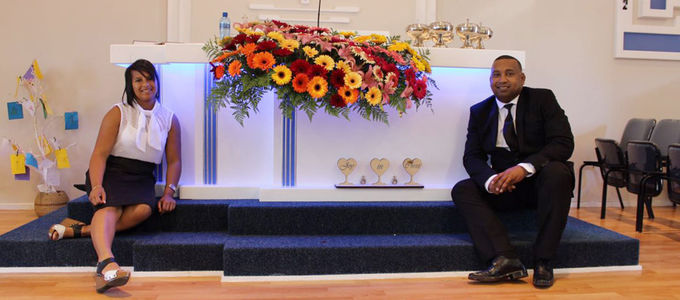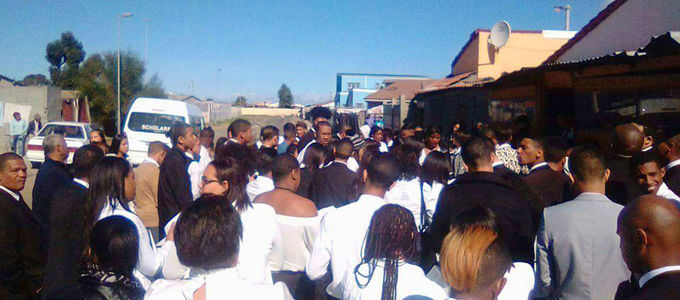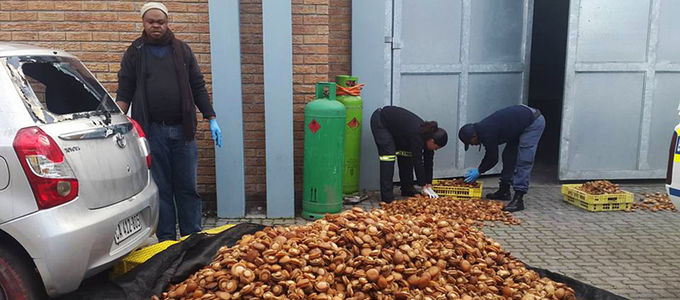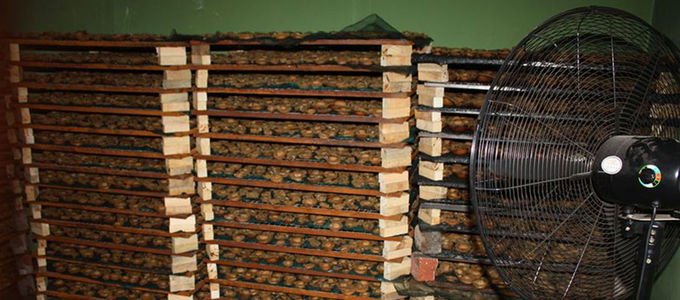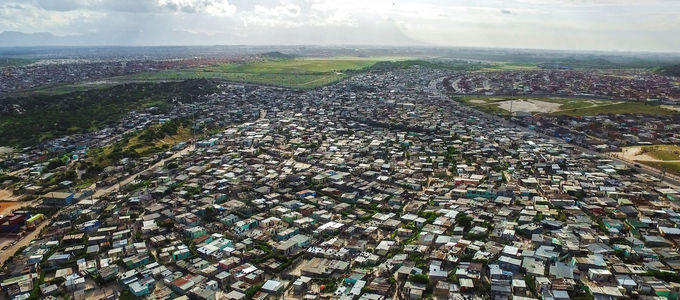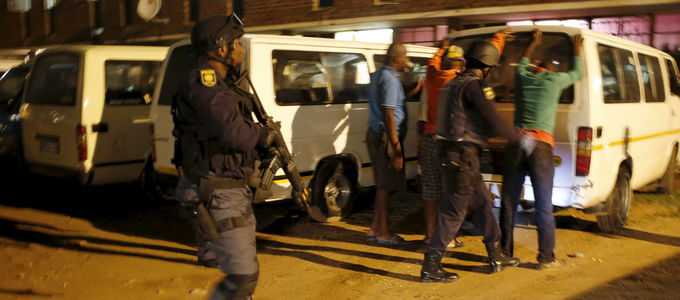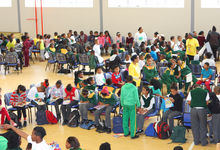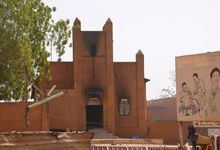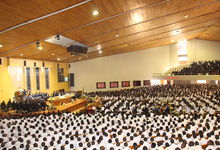Farewell Chrissie! — The daily tragedy
Chrissandra is dead. The youth leader was killed in the crossfire of a gang shootout—a tragedy that is part of daily life in some parts of South Africa. What does it mean to live one’s faith while surrounded by poverty and violence? — The following provides some insight.
Saturday, 12 August 2017, almost 6 p.m.: Chrissandra Oppermann has just returned home from a youth excursion to Ruyterwacht. The 30-year-old leaves the house for a few moments to borrow a potjie—a pot grill—from a friend. Her father hears gunshots. Out on the street he finds his daughter—with a hole in her head. She dies in hospital.
Mussels? No, the gangs are after abalones. They are sea snails: a delicacy, especially in Asia—the new “white gold” of South Africa, protected, but illegally harvested. A carload of contraband has been secured by the police—worth a good $600,000 US, seized in a police raid in Bishop Lavis, a suburb of Cape Town. But now the police officers are attacked. At first the only projectiles are stones, but then shots are fired. One of the bullets hits Chrissandra.
“Chrissie was loved by all and had a positive impact on everyone who knew her,” relates her mother. Some 800 people attend the funeral in the New Apostolic congregation of Netreg. “She had a beautiful soul,” says ward councillor Angus McKenzie. Chrissandra’s last post on Facebook is taken from Philippians 4: 19: “And my God shall supply all your need according to His riches in glory by Christ Jesus.”
The suffering in numbers
Courtney, four years old, murdered on 5 March 2017. Charneal, eight years old, killed in a drive-by shooting on 11 December 2016. Selwyn, stabbed on 31 May 2017. Denzil, Chrissandra, Chadwin: shot, shot, shot. So reads the list of victims of violent crime between May 2016 and August 2017—from among the church members of the diocese of Bishop Alwin Witten alone. More than half are younger than 20, hardly any are older than 30.
There is a break-in every three minutes, an attack every five minutes, and a killing approximately every thirty minutes. The crime rate in South Africa is among the highest in the world. There are few other countries in the world where income is so unequally distributed. Poverty prevails in the Townships, residential settlements from the era of racial separation. The unemployment rate here is often in excess of 60 per cent.
God’s special possession
Being on your guard 24/7. That is the survival strategy for those who live in the Townships, as described by Apostle Peter Lambert while he was a guest at the 2016 Youth Convention in Frankfurt, Germany: people live in the most cramped of conditions, gang leaders and drug lords rule the area, constantly engaging in power struggles. When children go to school in the morning, parents never know whether they will ever see their little ones again. And even the way to church can be life-threatening if it happens to cross the border between rival gangs.
“Our heavenly Father’s special possession” is the title of one of the documentaries that was released in February 2015. Congregations from three dioceses discuss what it is like to live in the midst of such violence. They tell of congregations that stay together after the divine service because shots are still being fired outside. They talk about gangsters who storm into the church to look for hidden rivals. They speak of members who die violently, whether as innocent victims or as gang members themselves.
“Safety first” is the motto of the leaders here. If conflicts threaten, divine services are shortened or cancelled altogether. If congregations are prevented from assembling for longer periods of time, the ministers resort to house services. And wherever possible, church activities end before five o’clock in the afternoon, because that is the time when gangs typically begin shooting.
A safe haven
Drug addiction, rape, murder—an extreme environment for ministers. “I know what you have seen,” says Chief Apostle Jean-Luc Schneider in a church full of rectors at the end of 2016. The men have tears in their eyes. The church Leiden Central is located in Delft, a crime stronghold.
It is a church building that serves as a gymnasium on weekdays. It is a safe haven for the 300 children who come here every day and receive food and help with their homework, for example. “A place where children can learn a better way, and receive the tools to deal with their daily trauma,” says Ursula Poggenpoel-Smith of the New Apostolic aid organisation Masakhe.
South African District Apostle John L. Kriel sees this as an example for all congregations: “It would be desirable if every one of our church buildings could offer such a refuge,” he writes in an article. But the reality of limited resources makes this impossible. Nevertheless, every congregation—without exception—can be a refuge for people in spiritual need.
Article info
Author:
Date:
Keywords:
Andreas Rother
30.09.2017
South Africa,
Aid agencies,
Social commitment,
Congregational life



